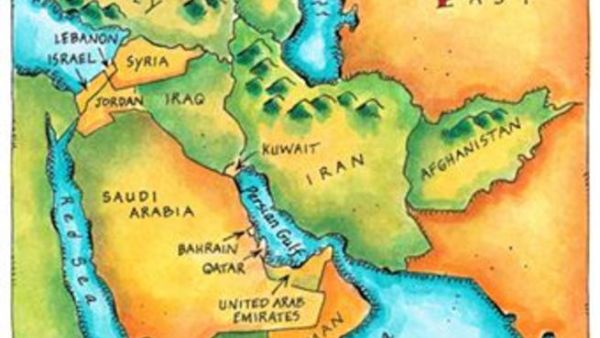Turkish Economy Minister Zafer Caglayan said on Friday that Turkey could ban Syrian imports in light of Syria's decision to suspend all imports into the country, reported the Beirut daily Annahar on Monday. This announcement comes after Syria banned most imports into the country as a result of sanctions.
The Syrian Minister of Trade and Economy, Mohamed Nidal Al-Shaar, recently announced that "in the context of preventative measures to protect Syria's national economy and local products, the cabinet issued a decree temporarily suspending imports... with a tariff greater than 5 percent," " according to the pan-Arab daily Asharq Al-Awsat. Syria has suspended imports from countries that it has signed bilateral trade agreements with and countries in the Arab Free Trade Zone, which includes Turkey.
However, Leon Zaki, who is a member of Syrian Federation of Chambers of Commerce and the Aleppo Chamber of Commerce, said that ""Syria has not decided to stop importing all goods and products from Turkey... only imports with a tariff over 5 percent.""
The ban on imports has coincided with a media campaign launched by semi-official Syrian news media calling for a boycott of Turkish goods and an increase in demands from several provinces to cancel Turkish-Syrian trade agreements signed in recent years. Many Syrians see the deals as favoring the Turkish side, according to Asharq Al-Awsat.
Nonetheless, Zaki assured that ""even from Arab countries and friends, like China, Russia, Iran and others, this is a temporary measure; the government will change it in light of economic changes."" He further added that Turkey will end up ""the bigger loser"" from this decision because Turkey has more factories and investments in Syria than Syria has in Turkey.
Turkish Premier Recep Tayyip Erdogan's decision to coordinate with the U.S. in implementing more sanctions, in addition to the extant economic pressure, will ""reflect on the subsistence of the average citizen,"" said Zaki. Therefore, he believes that ""it is necessary to boycott Turkish goods in the Syrian market,"" reported Annahar. Similarly, Baha al-Deen Hussein, Vice-President of the Damascus Chamber of Commerce and Vice-President of the Council of Syrian-Turkish Businessmen, said that Syrians ""are ready to take any equivalent and proportional decision.""
Turkey is considered Syria's number one trading partner. Official trading figures show that last year's trade reached $2.5 million, of which $1.6 million are Turkish exports into Syria. The two countries signed a free trade agreement in 2004 that came into force in 2007, resulting in a 30 percent yearly increase in trade, wrote Asharq Al-Awsat.
As for Lebanon, the pan-Arab daily reported that Syria's decision last week to ban imports with a tariff above 5 percent has struck a serious blow to Lebanese exporters, especially industrialists, who stand to lose over $300 million.
The Lebanese Economy and Trade Minister, Nicolas Nahas, told Asharq Al-Awsat in a telephone interview that ""the Syrian measures are temporary,"" and that ""there is daily communication with the Syrians to solve the problem."" However, a parliamentarians from Zahle, located in the Bekaa Valley adjacent to the Syrian border, are sounding the alarm, saying that the decision is negatively impacting the food and agriculture industry in the valley. Furthermore, MP Asim Araji told the daily that according to the information available to him, the ""duration of the import ban on Lebanon by Syria will be long"" and that the losses could exceed ""$400 million in the case that the decision is not repealed.""








